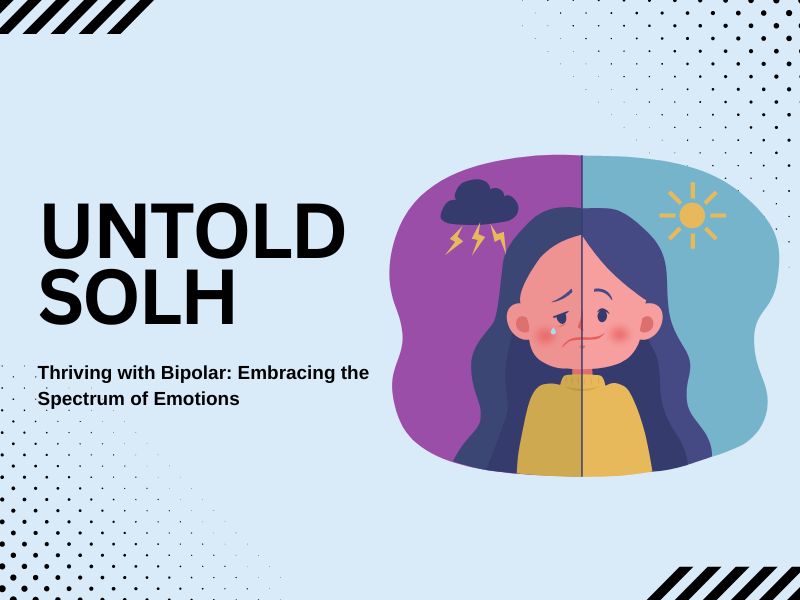Bipolar disorder is a mental health condition that can profoundly impact a person's life. Extreme shifts in mood, energy levels, and behavior characterize this disorder. Support from family, friends, and mental health professionals can help individuals manage their symptoms, maintain stability, and improve their overall well-being.
Help can come in various forms, including emotional encouragement, practical assistance, medication management, and therapy. Support groups for individuals with bipolar disorder can also provide a sense of community and understanding, which can be particularly beneficial for those who may feel isolated or misunderstood.
Supporting a person with Bipolar Disorder
If someone is struggling with bipolar disorder, there are several ways to support them.
- First and foremost, educating yourself about the disorder and learning how it affects your loved one is essential.
- You can also offer emotional support by listening to and validating their feelings.
- With your help, your loved one can learn to deal with their symptoms and lead a fulfilling life.
You May Also Like: What is Down Syndrome? Causes, Symptoms and Treatment
Helping Family Members with Bipolar Disorder:
The first support people with bipolar disorder seek from family members. Some tips you can follow to help people cope with bipolar disorder.
- Talking to the person about their experiences can help them feel supported and accepted.
- Discuss having fun while being creative and offer a second opinion on projects or commitments.
- Helping manage money and keeping a routine, including regular meals and sleeping patterns, can be helpful.
- During a manic episode, calmly discuss your feelings with them when they're more stable, and try not to be judgemental or overly critical.
Helping a Friend with Bipolar Disorder:
Support from friends can help the person going through bipolar disorder to socialize more. If your friend suffers from the same disorder, you can help them by following simple steps.
- Be patient when they have mood swings and offer reassurance with a smile or a hug.
- Don't try to 'fix' their problem or challenge their beliefs, but support their feelings.
- Check-in regularly, know their triggers, and maintain tight and trusted networks.
- Talk to them when they're feeling well and create a game plan for when they are ill or have a manic episode.
Helping Employees with Bipolar Disorder:
If you are an employer and one of your employees has bipolar disorder, then it is essential to learn how to educate yourself on managing bipolar employees.
- Be prepared in case your employee has a panic attack.
- Provide a safe space for them to open up and talk about their frustrations.
- Remember not to take things to heart and that you don't necessarily have to be a therapist to support people with bipolar disorder.
Conclusion
Bipolar disorder treatment is the lifestyle of the individual suffering from it. Specific changes in their life can lead them to live better lives. With the proper support and guidance from loved ones, anything is possible.
If you're someone or know someone suffering from the same disorder, connect with Solh Wellness. With personalized mental solutions according to the individuals' stimuli, Solh Wellness strives to remove the stigma around mental health. Download the Solh Wellness App and step towards better mental health and life.



